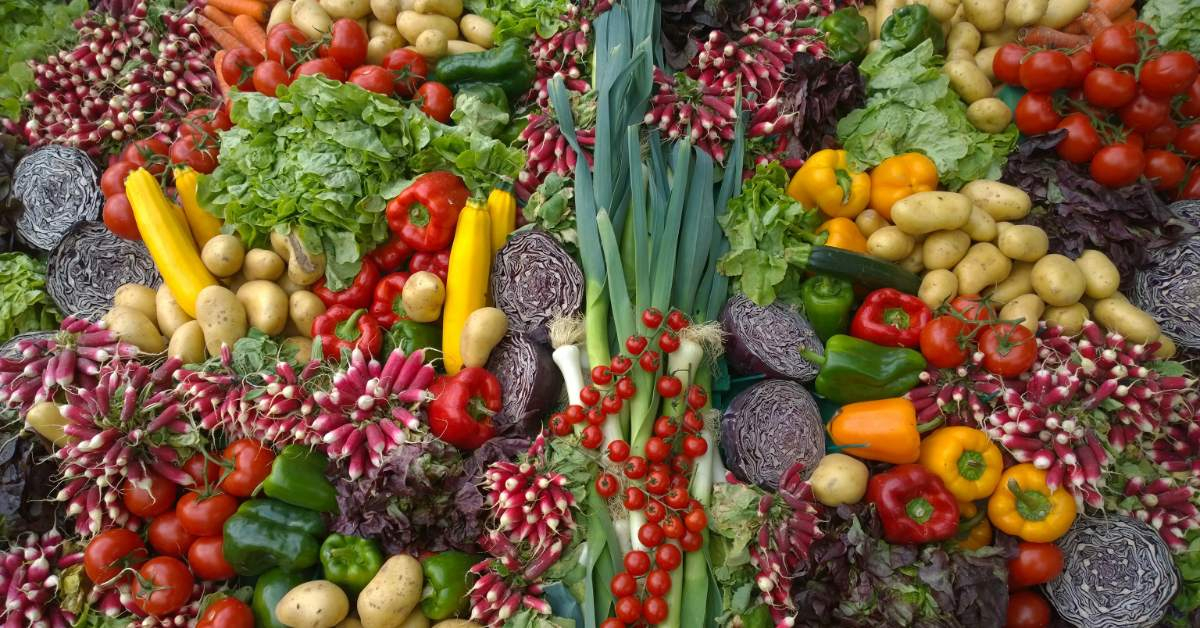Created by the Academy of Nutrition and Dietetics, National Nutrition Month is a time to celebrate healthy eating! It’s also an opportunity to take a look at what we’re consuming and make smart changes for better health.
Why It’s Important to Eat Healthy
Food is supposed to provide you with energy! In addition, it supplies the nutrients that your cells need to function at their best. Every system of your body is composed of cells, from your blood to your muscles, and from your internal organs to your skin. In order for them to function at their peak, you need to eat healthy foods so that every individual cell is the healthiest it can be! Feed your body proper nutrition, and it will respond favorably and serve you well. Eating a balanced diet filled with nutritious foods is key to promoting overall health and well-being.
Are You Eating Plenty of Fresh Fruits and Vegetables?
Fresh fruits and vegetables are loaded with vitamins, minerals, and antioxidants that your body needs to work properly. For example, vitamin A helps maintain healthy teeth and skin. Vitamin C strengthens the immune system and promotes wound healing. Antioxidants prevent damage to cells. Zinc reduces inflammation, iron helps regulate body temperature, and copper helps maintain nerve cells. These nutrients are found aplenty in fresh produce! Including a wide variety of fruits and vegetables in your diet is essential for maintaining a healthy lifestyle and supporting elder care needs.
Check Your Portions
Some people make the mistake of overeating. This can contribute to a wide range of problems associated with being overweight, including digestive issues, high blood pressure, diabetes, and heart disease. Check your portions and make sure that you’re neither undereating nor overeating, but eating just right! Proper portion control is an important part of healthy eating, especially for older adults who may require assistance from a home care aide or care provider to maintain their nutrition.
Healthy Foods Are Colorful!
Take a look at the produce section of your grocery store. You’ll see all kinds of wonderful colors! Bright orange melons and tangerines, yellow bananas and squash, rich green leafy vegetables and zucchinis, purple eggplants, bright red strawberries and raspberries… these colors draw us in, and having a variety of colorful foods on your plate means getting the wide range of nutrients your body needs to stay healthy. Eating colorful, nutrient-dense foods is an essential aspect of private duty care and nutrition support.
How a Home Care Aide Can Help
For older adults and disabled individuals, eating healthy can become a challenge. There’s the chore of doing groceries, which can become a difficult one for a number of reasons. First, it takes a great deal of energy to go grocery shopping and deal with crowds at the store. Second, getting there can be an issue if the individual does not drive. Then there’s the matter of preparing meals with the ingredients purchased at the store. This also takes time, effort, energy, and skills that may not be as prevalent as they once were.
In these cases, having an independent home care aide can be a lifesaver. A personal care or companion aide can help with grocery shopping, meal preparation, washing dishes, and more, enabling the individual to continue to eat a balanced, nutritious diet every day. Home care services can ensure that older adults receive proper nutrition and maintain a healthy lifestyle, which is critical for their overall health and well-being.
If we can be of assistance in referring a care provider who can meet the home care needs of you or a loved one, please contact us at (239) 920-3902. Our team at Collier Home Care is committed to delivering a personalized referral service that meets your individual needs and expectations. We believe in a client-first approach and we are ready to go the extra mile to ensure your complete satisfaction with our referral services.

